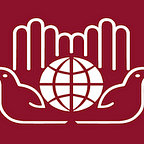Milestones Testimony: Florian Razesberger
Kiev — When I first learned about the International Diploma in Humanitarian Assistance (IDHA), I was advised that it was probably not for me. A friend was taking the course at the time, and she thought that with my profile and background, I should look for a different course. “After all, you are a lawyer,” she said.
I am, in fact, a lawyer by education, and my work always has had some connection to legal issues; however, I have never been content to sit in a corporate office, trading my lifetime away for money I did not need. To be reduced to the stereotype of a lawyer — tough but boring, a technical stickler, colorless in suit and humor, unscrupulous, and most importantly, greedy — annoys me to no end.
I decided to apply to the IDHA for the same reason I decided to study law a decade earlier: curiosity. Back then I had absolutely no idea what law was about, but when I applied to the IDHA, I thought I had at least some idea about humanitarian assistance. After all, the work I had done as a lawyer always related to the situations of conflict, but mostly from a legal side. Yet when I looked at the IDHA curriculum, subjects like humanitarian reform, logistics, or camp management did not tell me anything. Only on the “law day” was there some beacon of clarity within the whole program. The rest was unknown.
What I knew was the routine of everyday work. At the time, I was working on rule of law issues in Macedonia, preparing trainings on war crimes for judges and human rights workshops for young lawyers. It was time for something different. Winter was coming and November in the Balkans is a rather bleak affair. The prospect of learning about a completely foreign subject for a whole month in a place like Nairobi, with people I had never met, and who came from different fields and from different countries I had never visited, was a “no-brainer.” My boss initially suspected that all of this was a cover for a safari trip and a vacation on the Mombasa beaches, but eventually he agreed to let me go for the month. It turned out to be a different kind of safari. Someone once referred to the IDHA as a humanitarian boot camp, and there is certainly some truth to this. My colleagues in Macedonia suspected that I would be having idle fun among giraffes and white sand, but that was not the case.
To be basically locked up in a compound, which took the innocent shape of a convent run by caring nuns; to be put to work for four weeks in a row; to come up time and again with reasonable, presentable products; to take exams every Monday; to write a research paper over the weekends; and to sit in class 50 hours each week while staying up until the wee hours with colleagues in order to prepare presentation each Friday — that can be a hell of a ride. Especially when raw emotions take over, exhaustion caused by information-overload creeps in, and frustrations mount as, for some strange reason, your team members do not always agree with your opinions.
The formal education I received in the first two decades of my life differed vastly from the education I received from the IDHA. I had learned to be better than others, to measure myself against my colleagues and aspire to beat them; now, as an IDHA student, I had to learn to be a team player. Our teachers told us we would be together for every day of every week, and worst of all, that we would be graded as a group for out output, and not as individuals. Four long weeks lay ahead of me.
…
The IDHA was a turning point for me. As I moved to new places and tasks, I felt comfortable taking the lead in certain situations. I became an active leader, despite my insecurities, and over time I became a trainer, a public speaker, and also a manager. The IDHA syndicate work showed me how to communicate better, not only in the context of humanitarian aid, but also as a partner, a family member, and a friend.
Emotions often get the better of us, not only in situations of war and crisis, but also in our everyday lives. The IDHA taught me how important it is to respond constructively and respectfully, and even when you are pushed beyond your personal boundaries, to make rational decisions.
The course was an ideal way to test my limits, to measure myself in situations that push me out of the comfort zone and provide me with the opportunity to grow. It is only when our guard goes down, when we are tired, annoyed, bored, and irritated, that we are able to learn about sides of ourselves we never knew existed.
In the end, the IDHA is about the passionate moments, big and small: the moments in the syndicates, during fights or during jokes; the moments in the classroom, during the talks and during the breaks; the moments in the hours after class and during the sleepless nights. Those I take with me.
This is an abbreviated version of a testimony written by IDHA Alumnus and Tutor Florian Razesberger (IDHA 20), featured in Milestones in Humanitarian Action, available for purchase on the Fordham Press website.
